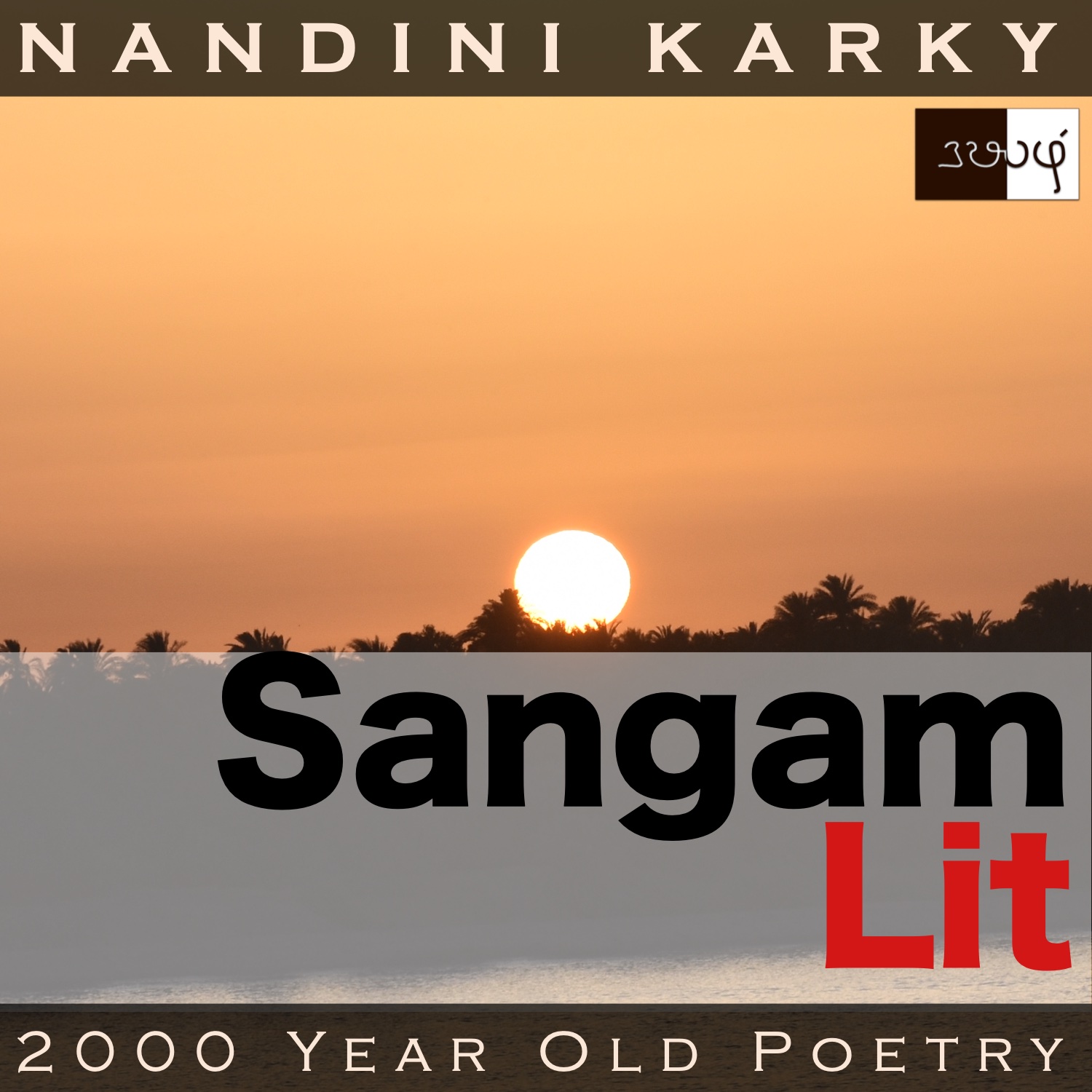Podcast: Play in new window | Download
Subscribe: Apple Podcasts | Spotify | Amazon Music | Android | iHeartRadio | TuneIn | RSS | More

In this episode, we perceive a comparison between the sun and a king, as portrayed in Sangam Literary work, Puranaanooru 8, about the Chera King Kadunko Vaazhiyaathan, sung by the poet Kabilar. Set in the category of ‘Paadan Thinai’ or ‘praise of a king’, the verse describes a ruler by outlining his motivations and qualities and placing him in parallel to a celestial object.
வையம் காவலர் வழிமொழிந்து ஒழுக,
போகம் வேண்டி, பொதுச் சொல் பொறாஅது,
இடம் சிறிது என்னும் ஊக்கம் துரப்ப,
ஒடுங்கா உள்ளத்து, ஓம்பா ஈகை,
கடந்து அடு தானைச் சேரலாதனை
யாங்கனம் ஒத்தியோ? வீங்கு செலல் மண்டிலம்!
பொழுது என வரைதி; புறக்கொடுத்து இறத்தி;
மாறி வருதி; மலை மறைந்து ஒளித்தி;
அகல் இரு விசும்பினானும்
பகல் விளங்குதியால், பல் கதிர் விரித்தே.
Having met Kabilar, the prolific Sangam poet in Natrinai and Kurunthogai ‘Aham’ or ‘inner life’ poetry, we now see him making his presence felt in the ‘Puram’ or ‘outer life’ literature of this era. Here he celebrates a Chera king and elevates him above that glowing red orb in the day sky. His radiant words to the sun can be translated as follows:
“As protectors of the earth sing his praises, seeking pleasures of material life, refusing the notion that land is common for all, propelled by the thought that his domain is small, with a mind that cannot be reined in, with charity that thinks not to save wealth, the Chera king stands facing his enemies with his faithful army.
How can you be equal to him, O sun on forever travels? You claim only the day as yours; You run away and disappear, showing your back; You keep changing your positions; You hide within the mountain; All you do in the wide and huge sky is spread many a ray and shine during the day!”
Time to take a trip with the sun to get to know this royal one! The poet starts by talking about how so many kings, whom he describes as those who protect earth, celebrate this Chera king Kadunko. After this, the poet clarifies the reasons for the king’s actions. The king was one to seek material pleasures of life and here, the poet talks of it as if it were a good thing. Then, he mentions how the king does not agree with the philosophy that land belongs to all. To me, this seemed as if the poet was hinting about a prevalent Buddhist philosophy of refraining from pleasures and believing in the futility of amassing wealth and concluding that the king was no follower to this paradigm. The poet describes how the Chera king seemed to think his land extent was small, and so he yearned to expand his territory with a burning will and that’s why he stood on the battlefield with his fierce and loyal army to win over rival rulers. Amidst these warlike tendencies, the poet adds one more quality about the king, something even we can appreciate, which is his charity that gives no thought to saving for himself.
After that portrait of the king, the poet turns to the sun and declares, ‘you can never rise up to the level of this monarch’. The reasons he outlines for that is that the sun, although it travels a lot, seems to define limits to its presence. Only the day I want, the sun seems to say, and when evening falls, it runs away from the field showing its back to the moon, which was not considered a valorous thing to do from a warrior’s perspective. Next, the poet elaborates how the sun does not stay in one position and keeps wavering and as if all these failures were not enough, he adds that the sun also hides behind a mountain. And, finally the poet ends with seeming disdain that the sun seems to spread its radiance on the sky only during the day. The poet’s intention when he belittles the sun is only to glorify the king.
Reverting to the portrait of the king, on one side, he seems not content with his lot, wants more and more of land, doesn’t think twice to wage wars, and in short, seems to be a greedy or ambitious ruler depending on one’s perspective. But on the other side, he gives to everyone, who comes seeking to him, without any thought of keeping the wealth for himself. That is the crux of the contrasting traits of such Sangam rulers. They seem to have the approach that as a king they must conquer to gain respect but at the same time, they must be compassionate to retain the respect they have earned. And, turning to the part of the verse where the sun is dismissed as being lesser than this king, while we can attribute this to the creativity of poets, in the end, it’s the sun that has the last laugh. For kings and premiers come and go, but the sun goes on and on, forever ruling the lives of all upon this rocky space we call home!




Share your thoughts...